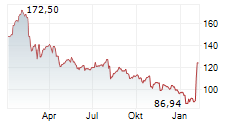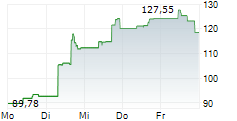NORTHAMPTON, MA / ACCESS Newswire / July 24, 2025 / Addressing the complex health needs of people with chronic conditions requires innovative solutions and strong collaborative efforts. The Food is Medicine Coalition (FIMC) is helping highlight the crucial role nutrition plays in healthcare and is working to provide medically tailored meals and nutrition support to those facing health-related dietary restrictions.
Through a grant under the DaVita Giving Foundation, FIMC and DaVita seek to create meaningful impact by improving food security, quality of life and self-reported hospitalization rates among individuals living with kidney disease receiving medically tailored meal services from three FIMC agencies - Open Arms of Minnesota (Minneapolis), Project Angel Food (Los Angeles) and Second Harvest Food Bank of Central Florida (Orlando).
Alissa Wassung serves as the Executive Director of FIMC. In this Q&A, she talks about the role food plays in managing health, expanding access to nutritious food and improving health outcomes for vulnerable populations.
How do you define food insecurity and why is this an important topic as we think about improving health in the U.S. today?
Food insecurity is the lack of consistent access to nutritious food for an active, healthy life. Food insecurity goes beyond hunger - it includes uncertainty about where one's next meal will come from, the inability to afford nutritious food, and reliance on cheaper, unhealthy options.
This is a critical issue for health in the U.S. because food insecurity disproportionately affects vulnerable communities, including low-income families, veterans, older Americans, communities of color, and people with chronic illnesses. Poor nutrition is often linked to higher rates of diabetes, heart disease and other health conditions, creating a cycle where food insecurity leads to poor health, which in turn increases medical costs and limits economic opportunities. Addressing food insecurity is essential for achieving better health outcomes and ensuring that individuals have the opportunity to thrive and flourish.
How does FIMC view this dual crisis of chronic illness and food insecurity, and what are some of the most pressing needs you see on the ground for individuals facing this experience?
The Food Is Medicine Coalition acknowledges the dual crises of chronic illness and food insecurity as deeply interconnected - one exacerbating the other in a cycle that disproportionately affects already at-risk populations. While medically tailored meals (MTMs) are not primarily designed to address food insecurity, rather illness-specific nutrition needs, they can be a key intervention to halt this cycle. Without access to nutritious, medically tailored meals, individuals with severe, complex and chronic illnesses can struggle to manage their conditions, leading to more hospitalizations, higher healthcare costs and poorer overall health outcomes.
Some of the most pressing needs include:
Access to Medically Tailored Meals (MTMs) and other food is medicine (FIM) interventions: Access to meals, tailored for their illness and delivered to their home, can be the tipping point in recovery.
Nutrition Education & Counseling: Nutrition professionals can offer person-centered insight, helping to ensure that client choice and cultural competency are embedded in the service.
Healthcare Integration: There is a growing need to ensure that food is seen as part of treatment, with healthcare providers screening for food insecurity - and other risk factors - and offering MTMs as part of patient care.
Sustainable Funding: Many organizations providing these services - like our FIMC nonprofits - rely primarily on grants and donations, highlighting the need for policy changes that integrate medically tailored nutrition into healthcare.
Addressing these challenges requires a systemic approach that combines direct meal assistance, research that continues to build the evidence base, policy advocacy, and collaborations between healthcare and community-based practitioners.
Many people may not immediately connect food insecurity with specific health outcomes. Can you explain the direct link between access to nutritious food and the management - or even prevention - of chronic illnesses, like kidney disease?
The link between food insecurity and chronic illness is well-documented, and kidney disease is a prime example of how access to nutritious food directly impacts health outcomes and overall quality of life.
For individuals with chronic kidney disease (CKD), diet is not just a lifestyle choice - it's a necessary part of care. Proper nutrition helps manage blood pressure, blood sugar and fluid balance, all of which are critical for helping slow the progression of CKD and prevent complications like cardiovascular disease. However, people experiencing food insecurity often face limited access to a diet with appropriate levels of sodium, potassium and phosphorus, which is essential for CKD management. Many affordable and accessible foods - such as processed meals - contain high levels of these substances. When fresh, healthy options aren't available, individuals often turn to low-cost, high-sodium and high-sugar foods that can contribute to worsening kidney function, diabetes and hypertension. Many cases of CKD stem from poorly managed diabetes and hypertension, both of which are significantly influenced by diet. Early intervention with nutritious food could prevent or delay disease progression.
Evidence shows that MTMs help people manage their conditions and can reduce hospitalizations and healthcare costs. By integrating MTMs into healthcare by providing access to nutrition in addition to medical treatment, we can create better health outcomes and prevent chronic illnesses from worsening.
How does FIMC collaborate with organizations like DaVita to expand access to medically tailored meals and nutrition support for people with health-related dietary restrictions? What makes these collaborations effective?
Collaborations between FIMC and organizations like DaVita are essential in expanding access to high-quality medically tailored meals and nutrition support for individuals with chronic illnesses, including kidney disease. By working together, we can continue to emphasize the critical role nutrition plays in disease management and help patients receive both the medical care and nutritional support they need to manage their health - and even thrive.
FIMC agencies created the MTM interventions 40 years ago in response to community need during the HIV epidemic. Since then, peer-reviewed research - largely done on FIMC agencies - has shown that MTMs produce better health outcomes and lower healthcare costs, and many states have leveraged flexibilities in the health care infrastructure to provide these services. The demonstrated success emphasizes the need to help ensure access to cost-effective services across the U.S.
Philanthropic collaborations like the one we have with DaVita help us make a difference and fill those gaps. In three of our focus markets with DaVita - Minneapolis, MN (Open Arms of Minnesota), Los Angeles (Project Angel Food), and central Florida (Second Harvest Food Bank of Central Florida) - our clients would have struggled with or gone without access to the nutrition they need. We pride ourselves on innovation in service, and philanthropic support allows us the flexibility to address needs that others cannot satisfy and develop cutting-edge nutrition programs that are in high demand in the field.
What are some of the components of FIMC's programs - beyond meal delivery - that can empower people to make healthier food choices and manage their conditions long term? How do collaborators like DaVita contribute to this broader goal?
FIMC agencies' programs go beyond meal delivery by integrating education, community engagement and policy advocacy to empower individuals to make sustainable, healthy food choices while managing chronic conditions. Collaborators like DaVita enhance these efforts by providing identification and referral, patient engagement strategies, and clinical expertise and support.
We know our research outcomes are not possible without nutritious food, community connection and cultural competency. That's why last year, we embedded our commitment to quality into the first-ever standard for the medically tailored meal intervention.
Registered dietitians are also critical to success in MTM interventions. They can provide medical nutrition therapy, counseling and education to help people gain the knowledge and resources they need for long-term health. Client choice is embedded in this interaction - showcasing the cultural variety of menus, languages and approaches.
Food is more than just nutrients, and so our agencies remain tied to our communities' needs through volunteerism, donations, community co-design of programs and more. Engaging with DaVita and other healthcare organizations strengthens these efforts to create a comprehensive care system for people managing chronic conditions.
Looking ahead, what role do you envision for continued collaboration with healthcare providers like DaVita in building a more equitable and health-focused system?
Continued collaboration will be critical in shaping a more efficient, compassionate and health-focused system. The future of these joint efforts lies in integrating food as medicine into standard healthcare practices, expanding access to medically tailored meals and other FIM interventions, and driving systemic change through policy and innovation.
Together, FIMC and DaVita can help shift the healthcare system toward a patient-centered model where nutrition is treated as a critical component of care. This work not only improves patient outcomes but also reduces healthcare costs, advances community health, and provides individuals with access to the nutrition they need to thrive.
View additional multimedia and more ESG storytelling from DaVita on 3blmedia.com.
Contact Info:
Spokesperson: DaVita
Website: https://www.3blmedia.com/profiles/davita
Email: info@3blmedia.com
SOURCE: DaVita
View the original press release on ACCESS Newswire:
https://www.accessnewswire.com/newsroom/en/healthcare-and-pharmaceutical/empowering-health-through-nutrition-a-conversation-with-fimc-executiv-1052335



